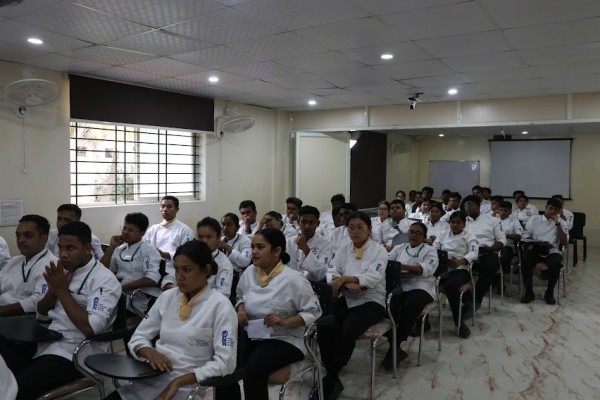Embarking on a journey at a Culinary Academy is a thrilling and rewarding experience for aspiring chefs and culinary enthusiasts. The culinary world is dynamic, and the right education can set the stage for a successful and fulfilling career. To make the most of your time at a Culinary Institute, consider the following ten tips that encompass everything from mastering techniques to building a professional network.
- Embrace a Learning Mindset:
One of the key elements to succeed in any educational journey, including culinary school, is to maintain a genuine eagerness to learn. Approach each class with an open mind, ready to absorb new information, techniques, and flavors. Cultivate a curiosity that extends beyond the classroom, exploring various cuisines, ingredients, and cooking styles to broaden your culinary horizons.
2 . Master Fundamental Techniques:
Building a strong foundation in culinary techniques is crucial for any aspiring chef. Pay close attention to knife skills, culinary terminology, and basic cooking methods. Understanding the science behind cooking will not only enhance your skills but also enable you to experiment and create innovative dishes confidently.
3 . Learn from Experienced Chefs:
Take advantage of the expertise of your instructors, who are seasoned professionals with a wealth of knowledge to share. Attend workshops, ask questions, and seek guidance from experienced chefs who can provide valuable insights into the industry. Forming strong connections with your instructors can open doors to mentorship opportunities and career advice.
4 . Embrace Diversity in Cuisines:
Culinary school is the perfect environment to explore the rich tapestry of global cuisines. Experiment with diverse ingredients, flavors, and cooking techniques to develop a well-rounded culinary repertoire. Understanding the nuances of different cuisines not only enhances your culinary skills but also prepares you for the diverse demands of the industry.
5 . Prioritize Time Management:
In the fast-paced world of professional kitchens, time management is a critical skill. Practice efficient organizational skills, plan your tasks, and prioritize assignments to meet deadlines. Developing effective time management habits during your culinary education will serve you well in the demanding and fast-paced environment of a professional kitchen.
6 . Cultivate Creativity and Innovation:
While mastering the basics is essential, don't be afraid to let your creativity flourish. Experiment with unique flavor combinations, presentation styles, and cooking methods to develop your culinary voice. Innovation is highly valued in the culinary world, and your ability to bring fresh ideas to the table can set you apart in the competitive industry.
7 . Build a Professional Network:
Networking is a powerful tool in any industry, and the culinary world is no exception. Attend industry events, connect with guest chefs, alumni, and fellow students, and participate in internships or externships to expand your professional network. These connections can lead to job opportunities, collaborations, and a deeper understanding of the diverse career paths within the culinary field.
8 . Seek Real-world Experience:
In addition to the hands-on experience gained in the classroom, seek opportunities for real-world exposure. Internships, externships, and part-time jobs in restaurants or catering services provide invaluable practical experience. Working in a professional kitchen environment allows you to apply your classroom knowledge, hone your skills, and gain a realistic understanding of the challenges and rewards of the culinary industry.
9 . Hone Your Presentation Skills:
In the culinary world, presentation is as crucial as taste. Practice and refine your plating and presentation skills to create visually appealing dishes. Aesthetically pleasing dishes not only delight the senses but also demonstrate a chef's attention to detail and commitment to excellence. Mastering the art of presentation enhances the overall dining experience for your future guests.
10 . Stay Updated on Industry Trends:
The culinary landscape is constantly evolving with new trends, ingredients, and techniques. Stay informed about industry trends, follow influential chefs on social media, and read culinary publications to remain current. Being aware of the latest developments in the culinary world not only keeps your skills relevant but also positions you as a forward-thinking and adaptable professional.
Maximizing your culinary institute experience requires a holistic approach that combines a love for learning, dedication to mastering techniques, and a proactive engagement with the culinary community. By embracing a diverse range of cuisines, building a robust network, and staying attuned to industry trends, you can ensure that your time at the culinary institute lays a solid foundation for a successful and fulfilling career in the dynamic world of gastronomy.






Comments